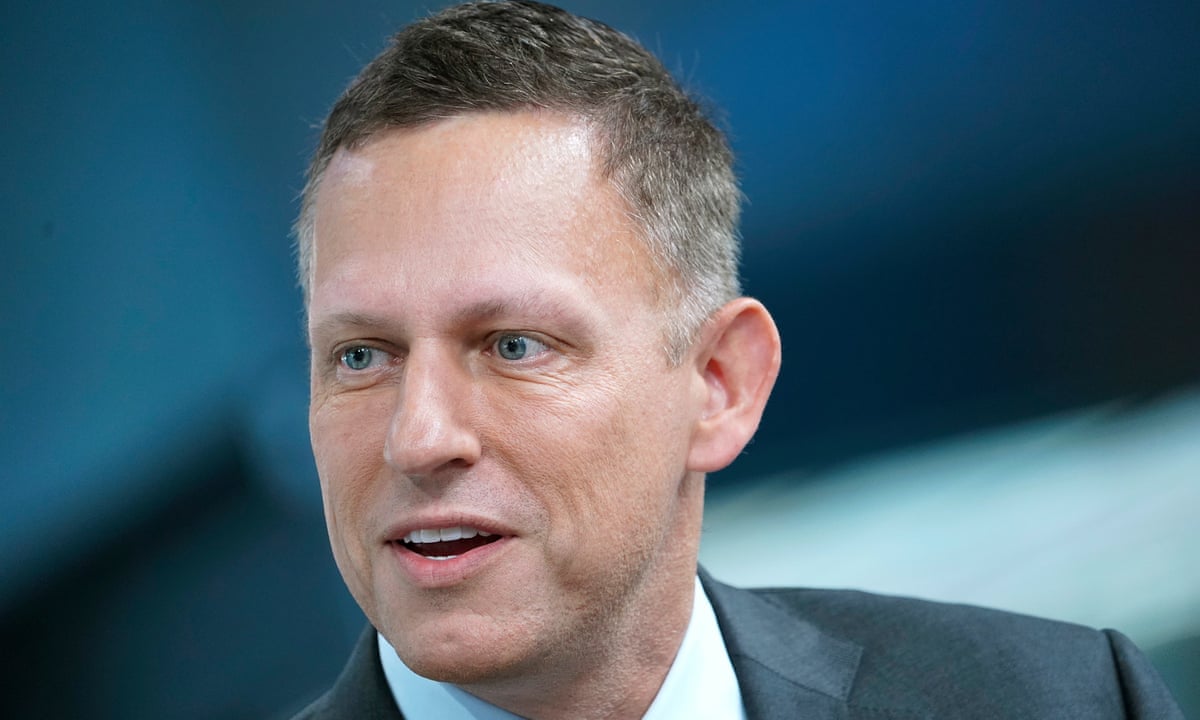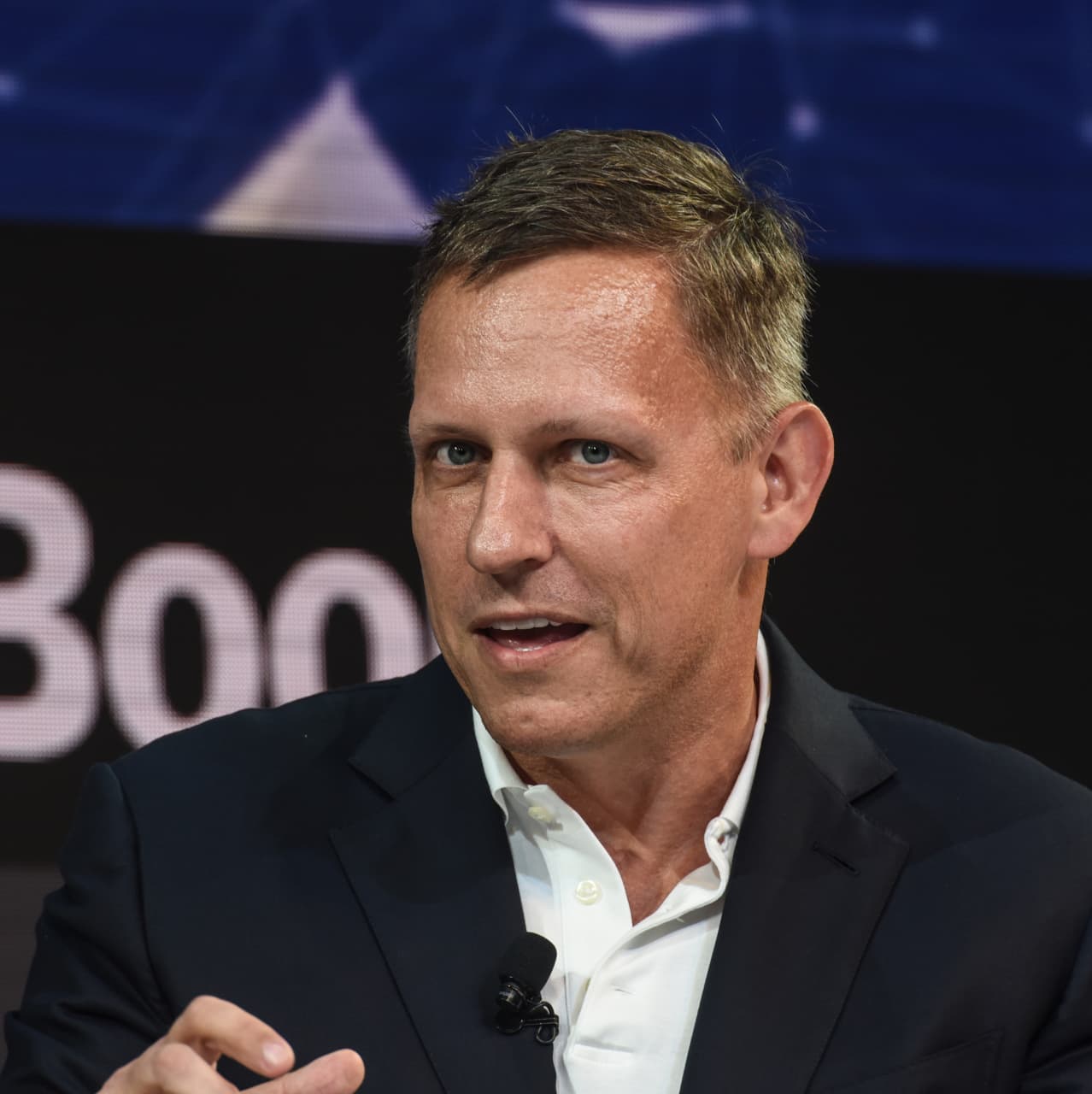Pull Money From SVB: Advice From Peter Thiel’s VC Fund
The $2.25 billion stock sale was led by Santa Clara, California-based SVB after a large loss in its portfolio, which included US stocks.

Startups began to explode as doubts grew about Silicon Valley Bank‘s (SVB) financial stability. The bank’s CEO has called for restraint, while other big venture capital firms, such as Peter Thiel‘s Funders Fund, have advised their holding companies to withdraw their funds. The $2.25 billion stock sale was led by Santa Clara, California-based SVB after a large loss in its portfolio, which included US stocks.
According to another allegation, Canaan, a large venture capital firm, has ordered its holding companies to withdraw funds when needed. SVB Financial Group CEO Greg Becker reportedly urged Silicon Valley Bank customers to “keep calm” during a conference call amid concerns about the bank’s financial health. at 11:30 a.m. Time in San Francisco, Becker had an approximately 10-minute conference call with investors. He is said to have urged the bank’s clients, particularly venture capitalists, to support the organization in the same way he has done for his clients over the past 40 years.
Government Bonds and Mortgage-Backed Securities
This unexpected announcement caused a stir. SVB shares fell 60% while bonds saw an unprecedented fall. Founders Fund has advised its portfolio companies to withdraw their funds from the SVB, according to a person familiar with the situation, who asked not to be identified because she is sharing private information. Others with direct knowledge of the situation say that Coatue Management, Union Square Ventures, and the Founder Collective have also authorized their portfolio companies to stop receiving funding.
![]()
Mixed Comments Made By Officials
Coatue, Union Square Ventures, and Founders Fund all declined to comment. Questions from representatives from Silicon Valley Bank, Canaan, and the founding collective were not immediately answered. Concerns were raised Thursday about Wall Street and Silicon Valley lenders as US bank stocks fell to their lowest levels since June 2020. The fund, which invests in startups, is reportedly experiencing “significant panic.” according to managing partner Jenny Fielding.
Fielding said it has not yet advised the companies in its portfolio but is actively monitoring the bank’s response to the question. In a letter from Bloomberg, Tribe co-founder Arjun Sethi wrote: “It’s important to remember that all banks require deposits and are leveraged. Because costs are low and risk is non-zero, it’s best to minimize risk share. Otherwise, it’s all. Another company, Activant Capital, is urging the CEOs of its portfolio companies to transfer their SVB balances to other lenders and is helping some of them wire money to First Republic Bank, according to CEO Steve Sarracino.
Mark Lau’s Silicon Valley Bank (SVB) said in an email that it had received questions from several of its customers about depositing 8-K in the past 24 hours, according to the body of an email. SVB’s shares fell to their lowest closing price since September 2016. The News previously reported on Becker’s call. The stock fell again by as much as 30% by the end of the session. The startup’s CEO, who asked not to be named, said his company tried to withdraw millions of dollars from Silicon Valley Bank on Thursday but failed.
SVB’s Reactions
SVB’s website was temporarily unavailable for a customer of the bank who spoke to Bloomberg, but other customers said they had no trouble withdrawing cash on Thursday. Some VCs stated that they were related to the bank. G-Squared inventor Larry Aschebrook says: “Many doctors and companies have put the SVB in a difficult position with the panic button. The SVB supports GPs and business leaders at all stages of their development, whose partnership must therefore be mutually beneficial. Well-known investor Mark Suster advised companies not to overdo it with bank messages.
Suster wrote, “I believe their CEO is claiming they are creditworthy and failing all the criteria of the banking startup community,” Bali said. E-mails and many exchanged financial advice on how to get funds out of the bank. A partner at a large venture capital firm says CFOs of large start-ups share the same theme. Many business owners and executives have expressed concern in discussions about how the collapse of SVB will affect Silicon Valley’s infrastructure.
The bank could seek to sell its stakes in portfolio companies, which would further depress the already low valuations of many startups. The balance sheets of other banks, hedge funds, and cross-funds holding the same assets would be much more vulnerable due to these lower valuations.
Investor Dan Scheinman said two companies that were early in his portfolio approached him to ask if they should close their bank accounts. Dan Scheinman has sponsored startups like Zoom Video Communications Inc. He advised them to wait until they had more knowledge before acting. Which banks would you like to contact? He asked if they were better or worse. Changing banks is easier than losing one.

Experts Concerns About SVB
At the end of the day, it was announced that Silicon Valley Bank had been shut down by the California Department of Treasury Protection and turned over to the Federal Deposit Insurance Corporation. The collapse of the SVB is described as the biggest bank failure since the financial crisis. SVB has had a tremendous impact on investors and IT companies in Seattle and around the world who use it to store money and secure venture capital. Seattle-area business owners told GeekWire they have been using SVB since it opened.
According to Mike McSherry, CEO of Xealth in Seattle, “They have been making significant contributions to startups for decades. Concerns about possible illiquid assets echoed in the startup community on Thursday after the bank’s shares fell after the company admitted it reported a $1.8 billion loss from a stock sale. Some companies have suggested that entrepreneurs consider other banking options. As investors and savers withdrew $42 billion in deposits Thursday, California authorities said Silicon Valley Bank had negative cash on hand of $958 million.
Before the announcement, Sandi Lin, CEO and co-founder of Seattle-based Skilljar, sent an email expressing her sadness at what is happening to such a large institution that plays such a central role in our technological landscape has played. Madrona Venture Group, a Seattle-based venture capital firm, said Thursday it spent “a lot of time” helping its founders, and that’s what it remains focused on to this day. According to the FDIC, SVB branches will reopen Monday and depositors will have full access to their funds no later than March 13. It will pay dividends to uninsured depositors next week.
![]()
Accounts up to $250,000 are FDIC insured. The statement said future dividend payments could be made to uninsured depositors if the FDIC sells assets to Silicon Valley Bank. After a significant drop following the SVB revelations, First Republic and other local banks were suspended due to volatility. In response to these elements, several companies indicated that they had no connection with SVB. Absci, a public biotech company headquartered in Vancouver, Wash., said in a regulatory filing that it “has no cash or securities account with Silicon Valley Bank.” Then came Omeros from Seattle.
Seattle-based business software provider Smartsheet told investors that their SVB deposits make up a small percentage of their short-term investments and their cash and cash equivalents. In the past two days, Silicon Valley Bank has been named in about 200 filings with the SEC. The collapse of SVB is the second largest bankruptcy in US history after Seattle-based Washington Mutual, whose assets JPMorgan Chase acquired in 2008 following the bankruptcy.
edited and proofread by nikita sharma





